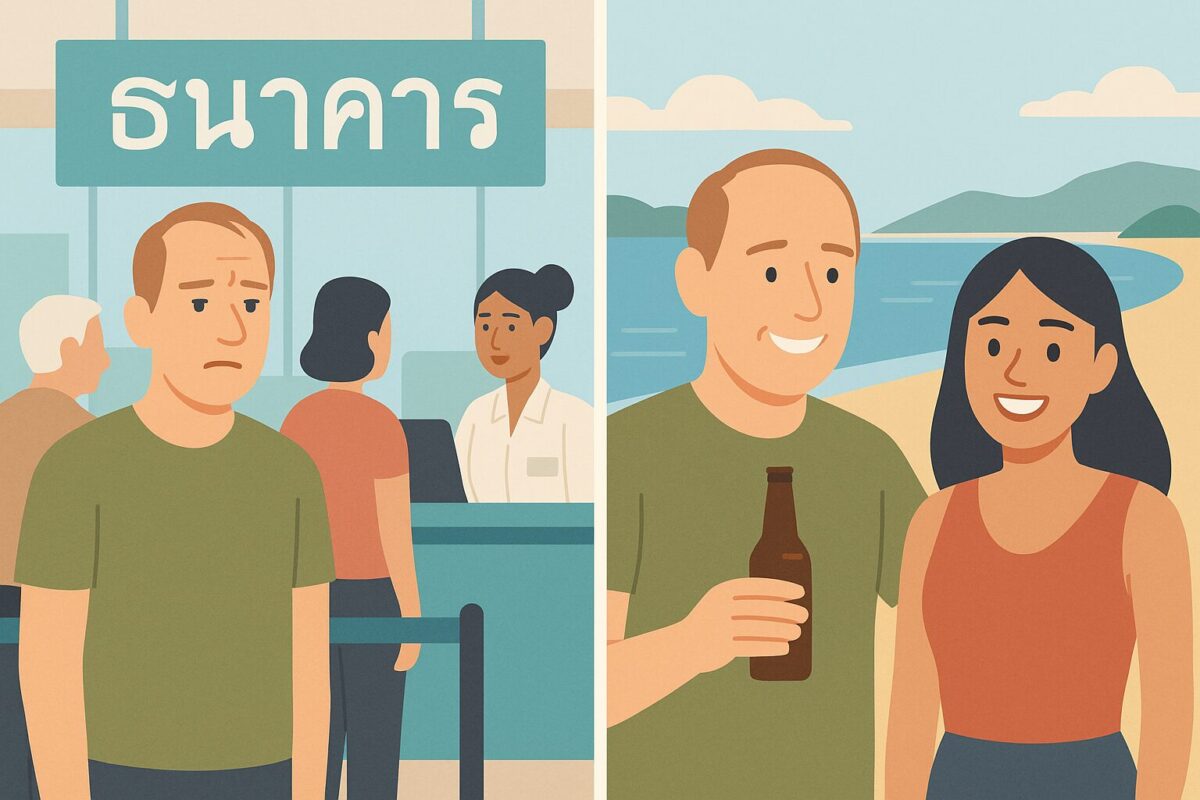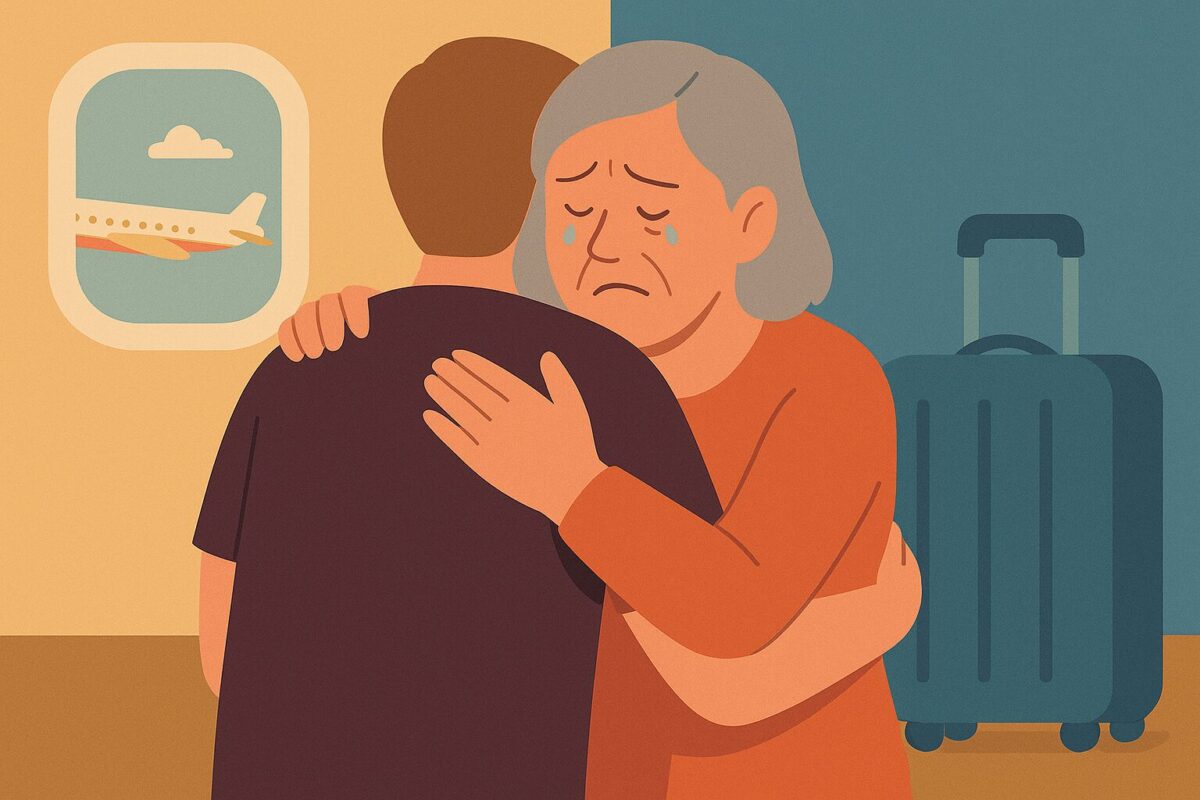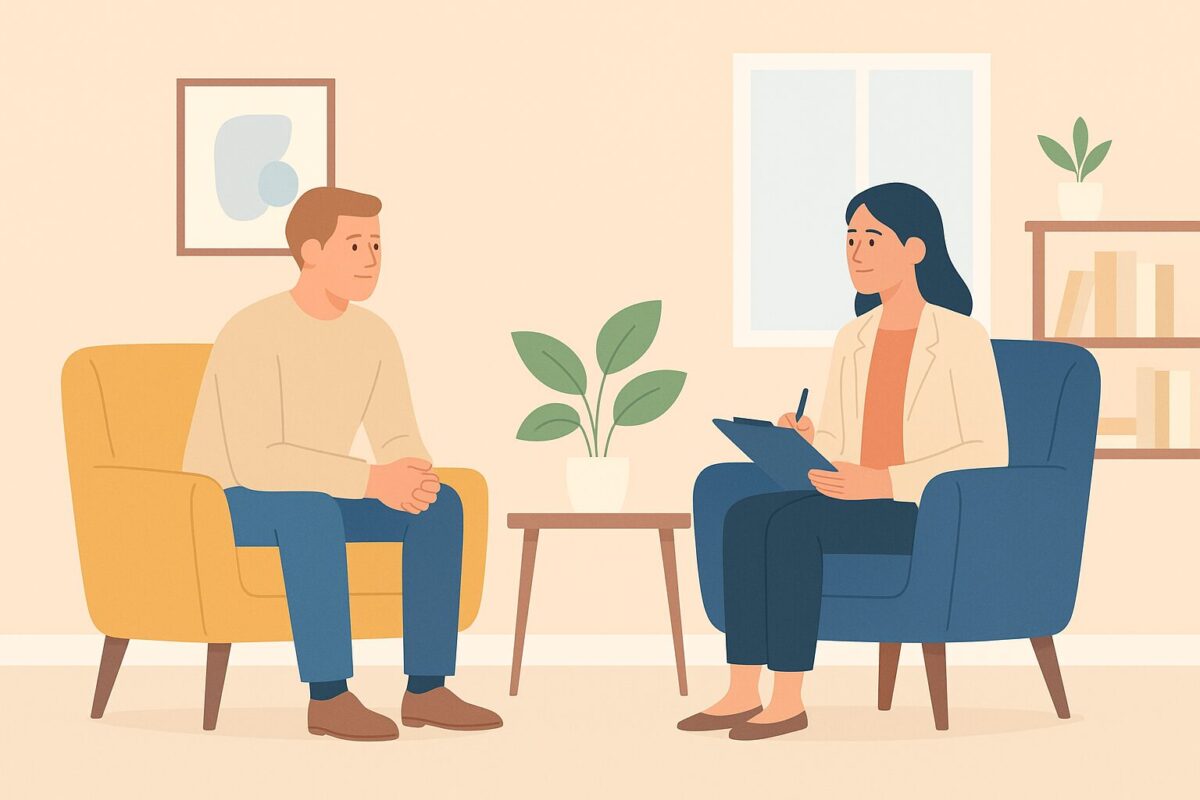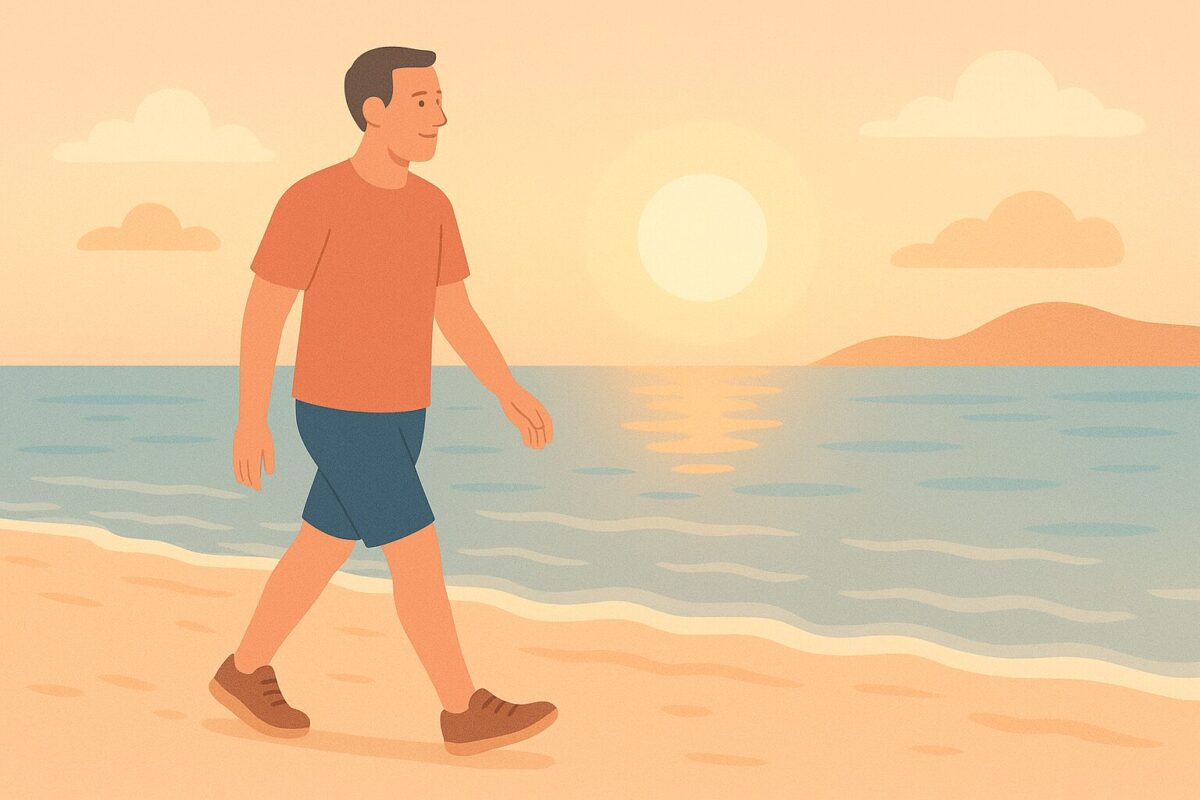How to Recognise & Beat Loneliness, Isolation and Culture Shock
Introduction – The Smile That Fades
There is a moment that hits many people after they move to Thailand. The visa is sorted, the bags are unpacked, friends back home are sending envious messages about your “dream life,” and yet you find yourself sitting on a balcony in paradise feeling oddly flat. The view is beautiful. The food is good. The weather is warm. Inside, though, something is off.
If that sounds uncomfortably familiar, you are far from alone.
Research on expats in general has found that people who relocate abroad are more likely to experience depression, anxiety and substance misuse than those who stay in their home country, partly because they lose familiar support networks and routines at the same time as they face cultural and practical stressors in a new environment.
Long term foreign residents in Thailand often talk about that gap between how life looks on social media and how it actually feels day to day. Publicly, the story is beaches, temples and cheap beer. Privately, there can be loneliness, low mood and a nagging sense of “Did I really do the right thing?”
Thailand is kind to many foreigners. It is not a difficult country to like. But it is still a foreign country, with a different language, different social rules and a very different idea of what a “normal” life looks like.
For new arrivals, especially older retirees, the familiar anchors of identity often vanish overnight. Work, neighbourhood, long term friends, even simple errands like going to the bank or the doctor all disappear or become strangely complicated.
What is left is a lot of free time and a lot of space in your own head.
On top of that, the usual safety valves are missing. You cannot easily drop in on family, or grab a coffee with a friend who has known you for twenty years. Time zones make spontaneous calls harder.
If you do not speak Thai beyond ordering food and saying thank you, it is very easy to spend entire days without a real conversation. Some people respond by drinking more than they ever did back home or by drifting into a pattern of late nights and slow, empty days. It can quietly slide from “holiday mode” into something that feels more like being stuck.
None of this means moving to Thailand was a mistake.
It does mean that mental health deserves as much attention as visa runs, apartment hunting and currency exchange rates. Feeling low, anxious or adrift in a new country is not a personal failure. It is a very human response to a major life change, even if that change was something you chose and looked forward to for years.
This article is written for the long term expat in Thailand or the person seriously thinking about becoming one. It looks at why the “expat blues” happen, how to recognise when normal ups and downs are turning into something more serious, and what you can do about it in a Thai context.
The aim is not to pathologize every bad day but to offer practical, realistic ways to look after your head as well as your heart in the Land of Smiles.

The Silent Struggle: Why Mental Health Hits Expats Harder
It surprises many people that moving somewhere warm, friendly and relatively easygoing can unsettle them more than their old life ever did. Before moving, most of us imagine the challenges will be practical ones like learning to drive on the left or figuring out how to pay our electricity bill at the 7–Eleven counter.
What catches people off guard is the emotional disruption that follows a relocation. The change is deeper than the physical move.
You are dismantling a life in one place and trying to assemble a new one from scratch. Even if Thailand is wonderful in a hundred different ways, the internal shift is still enormous.
One reason expats struggle is the loss of a shared cultural background. In your home country, the small things are effortless.
You know how to queue. You know how to complain politely. You know what people mean when they sigh or joke or roll their eyes.
In Thailand you start again with a blank slate. Most Thais are patient and kind with foreigners, but social cues do not line up neatly with what you grew up with. A day filled with minor misunderstandings or awkward interactions can leave you feeling tired in a way that is hard to explain to anyone who has not lived abroad.
Another reason is isolation disguised as freedom.
When you retire in Thailand or take a remote job here, your time becomes entirely your own. At first this is intoxicating. No commute, no boss, no miserable winters.
After a few months, though, the lack of structure becomes a different kind of challenge. Days start to blur into one another. Without the responsibilities, appointments and background noise of your old routine, you may find yourself drifting. It is possible to be surrounded by people in a Bangkok shopping mall or a beachside bar in Phuket and still feel profoundly alone.
Add to this the pressure of being the one who “escaped”. Friends and family often assume you are living the perfect life, which makes it difficult to admit when you are struggling.
You might downplay your feelings because you do not want to sound ungrateful. You chose this life and you enjoy many parts of it, so the melancholy feels out of place. But this internal conflict is exactly what so many long term expats quietly experience.
The truth is that living abroad magnifies emotions. Joy feels brighter. Stress feels heavier. Without a familiar support network, the lows can linger longer than they would back home.
Recognising this silent struggle is the first step toward managing it. It is not a sign that Thailand is wrong for you. It is a sign that being human does not stop just because you moved somewhere beautiful.

Culture Shock, Homesickness and the Slow Loss of Old Identity
Culture shock is a slippery thing. It rarely arrives in a dramatic single moment. Instead it tends to creep in gradually.
Most expats begin with the well known honeymoon stage. Everything feels new and exciting. Even the most ordinary moments, such as buying fruit at a market or hopping on a songthaew, feel like small adventures. You tell yourself you have adapted beautifully. You even start imagining that you are the sort of person who was always meant to live abroad.
Then the shine begins to fade.
Not all at once, but in small daily irritations. A conversation at the bank takes twenty minutes longer than you expected. The official you need is not available. The smile you use to cover your confusion starts feeling forced.
You reach a point where every difference seems to land on the same raw nerve. This is the frustration stage, and almost every expat hits it sooner or later. Thailand has its own pace, its own rhythm, and its own logic. When you come from a more direct or more predictable culture, things that locals accept without a second thought can feel baffling or exhausting.
Homesickness tends to strike around this time.
It may appear suddenly after months of confidence. A birthday back home or a missed family gathering can set it off. What surprises many people is that homesickness is not always about missing a specific person. Often it is about missing ease. You miss understanding everything around you without effort. You miss feeling competent. You miss the version of yourself who knew the rules without needing to think about them.
The loss of identity can be the hardest part.
In your home country you played many roles. You were the reliable coworker, the friend who knew the best restaurants, the parent or grandparent who could be counted on. In Thailand you become “the foreigner” first. People probably don’t know your background, your skills, or your achievements.
You start again from zero. For some this clean slate feels refreshing. For others it feels like a slow erosion of self. It takes time to rebuild a life where you feel recognised, capable and connected.
The good news is that this stage passes for most people.
Culture shock is a cycle, not a permanent state. Once you settle into the adjustment phase, the differences feel less threatening. You begin to enjoy the country again with a more grounded understanding of how things actually work. The goal is not to force yourself to love every moment. It is to understand that these emotional swings are a normal part of building a new life in a new place.

Warning Signs: When the Expat Blues Start Slipping Into Something Deeper
Most people who move abroad experience ups and downs. A few low days are not a crisis. They are part of adapting.
The challenge is recognising when normal adjustment is shifting into something heavier. Many expats ignore early signs because they do not want to “make a fuss” or because they assume it will pass on its own. Sometimes it does. Sometimes it does not. Paying attention early can save months of quiet struggle.
One of the first indicators is social withdrawal.
If you suddenly find yourself avoiding phone calls, skipping meet-ups or spending several days inside your apartment without meaningful contact, it is worth pausing and asking why. Thailand gives you the freedom to disappear if you want to. There are no neighbours expecting you at community events and no colleagues checking whether you seem off. While that independence is appealing, it also means isolation can creep in unnoticed.
Changes in sleep patterns are another sign.
Some people start sleeping far more than usual, using bed as refuge. Others sleep poorly despite feeling exhausted. Appetite often shifts too. You may lose interest in cooking or eating, or start relying on comfort foods more than usual.
If you are drinking more heavily than you did back home, that is another red flag. Thailand makes alcohol extremely accessible. A quiet drink on the beach can silently turn into a coping strategy.
A more subtle warning sign is a loss of interest in things that used to bring you joy.
You might stop exploring new places or lose motivation to take part in activities you once enjoyed. Everyday tasks start feeling heavier. A simple errand like going to the post office or paying a bill turns into something you put off for days.
Finally, pay attention to persistent thoughts of hopelessness.
Even if they are mild, they deserve to be taken seriously. Feeling stuck, numb or detached for weeks at a time is not something you need to tolerate. These feelings are not proof that you made the wrong move or that Thailand is to blame. They are signals from your mind asking for care and attention. Recognising them early is not a sign of weakness. It is an act of self-protection.

Finding Support in Thailand: What Help Actually Looks Like Here
Once you recognise that you are struggling, the next hurdle is knowing where to turn.
Thailand is welcoming and relaxed on the surface, but the support structures you relied on back home do not exist in the same way. That does not mean help is unavailable. It means you need to know where to look and what to expect. The country has a growing network of mental health resources for foreigners, although the landscape is different from most Western systems.
The most straightforward option is private healthcare.
Major cities such as Bangkok, Chiang Mai, Pattaya and Phuket have private hospitals with English speaking psychiatrists, psychologists and counsellors. These hospitals operate more like private clinics in the West. You can usually book appointments directly without needing a referral.
The cost varies, but many expats find that therapy sessions are affordable compared with prices in Europe, Australia or the United States. The benefit of using a large hospital is access to proper diagnostics, medication if needed and staff who are used to working with international residents.
Outside the big cities, the options narrow but do not disappear. Several Thai psychologists and counsellors run private practices that cater to foreigners. Some hold international qualifications while others have trained locally. Many offer sessions in English.
It is worth asking for an initial consultation to see whether their approach suits you. Some expats feel more comfortable talking to a Western trained therapist, while others prefer someone who understands Thai culture intimately enough to help them navigate cross cultural pressures.
Online therapy has quietly become a lifeline for many expats.
Video based counselling removes the need to travel to a city and allows you to speak with a therapist from your home country if that feels more natural. Time zones can be tricky, but for retirees or remote workers the flexibility is usually manageable. Online providers also offer anonymity, which some people appreciate when they are not ready to talk openly about their struggles.
Support does not always have to be clinical. Thailand has a surprisingly active network of informal help.
In larger cities you can find peer support groups, community meetups and expat run circles that offer a sense of connection without formality. These are not replacements for professional care, but they can reduce isolation and remind you that you are not the only one dealing with emotional turbulence. Many temples and retreat centres also offer meditation courses that focus on grounding and mindfulness. While they are not therapy in the clinical sense, they can help steady your mind and give you tools to manage stress.
The important thing is to recognise that asking for help in Thailand is entirely possible.
It may not look exactly like the system you knew back home, but there are people here who understand and are willing to support you. You do not need to manage everything alone or pretend you are fine because you live in a place other people associate with holidays.
Help exists. You just need to take the first step toward it.

Daily Habits That Build Emotional Strength
There is no single cure for the expat blues. What does make a difference is the small, regular habits that create stability and connection.
Mental health improves when life has shape and rhythm. Thailand’s easygoing atmosphere can be wonderful, but it can also tempt you into drifting if you are not careful. These habits are not complicated, but they work because they rebuild the sense of groundedness you left behind when you moved.
A reliable routine is often the first thing to put back in place.
You do not need to plan every hour of the day, but anchors matter. Waking up at a consistent time, having a simple morning ritual, and knowing roughly what each day will involve all give your mind a sense of predictability. This is especially important for retirees who have suddenly lost the structure of work. A routine can be as basic as a morning walk, a midday coffee at the same café or an hour set aside for reading.
Movement is another key part of emotional health.
Thailand makes it easy to be active. If you live near the coast you can swim. If you live inland there are walking trails, parks and gyms everywhere. Regular exercise is not just good for the body. It lifts mood, improves sleep and breaks the cycle of rumination that often accompanies low mental states. Even a fifteen minute walk along your street can help reset a difficult day.
Connection needs to be intentional in a new country.
Waiting for people to appear rarely works, so it helps to seek out activities where social contact happens naturally. Many expats find community through sports groups, hobby classes, volunteer work, book clubs, language exchanges or local meetups. These environments give you shared interests to talk about rather than relying on small talk alone. The people you meet may not become best friends immediately, but they break the sense of isolation and widen your circle.
Technology keeps you tied to home, but it works best when used deliberately.
Regular video calls with family or old friends remind you that your old life still exists even if it is far away. The trick is to strike a balance. Staying connected is healthy, but spending hours scrolling through photos of everyone else’s life can worsen homesickness. Use technology as a bridge, not a substitute for building a life where you are.
Alcohol is something to watch with care.
Thailand’s casual drinking culture and low prices make it easy to use alcohol as a coping mechanism without realising it. A beer at sunset can be a pleasure. A morning beer because you are bored or lonely is a warning sign. Moderation does not mean abstinence. It means noticing why you are drinking and whether it helps or harms you.
Learning Thai, even at a basic level, can make daily life smoother.
You do not need fluency. Simple phrases open doors and reduce the sense of being an outsider. Being able to greet neighbours, ask basic questions or understand the rhythm of local conversations helps you feel more rooted in your surroundings. Every time you succeed in communicating, even imperfectly, it builds confidence.
Purpose is the final piece.
Humans do better when they have something meaningful to contribute. That might be volunteering, mentoring younger people, joining a community project or taking on a personal challenge. Purpose does not need to be grand. It just needs to give shape to your weeks and a sense that your presence in Thailand matters.
None of these habits will transform your life overnight. Their value is in accumulation.
When practiced consistently, they provide stability, connection and a sense of self that can withstand the emotional swings of expat life. Small steps repeated daily often do more for your wellbeing than any dramatic change.

When It Might Be Time to Reevaluate the Move
Not every difficult patch means that Thailand is the wrong place for you.
Most expats go through cycles of adjustment, frustration and renewal. Even long term residents with decades of experience admit they have had moments where they wondered if they should pack up and start again somewhere else. That feeling in itself does not mean your time in Thailand is ending. It simply means your instincts are asking you to pause and reassess what you need.
There are, however, times when an honest reevaluation is healthy. If you have been struggling for many months with little improvement despite making real efforts to build a life here, it might be worth stepping back to look at the broader picture.
Some people thrive in new environments. Others discover that the distance from family, or the language barrier, or the lack of a strong local community weighs more heavily on them than they expected.
The goal is not to judge yourself for this. The goal is to understand what supports your wellbeing and what undermines it.
Sometimes the solution is not leaving Thailand. It may be relocating within the country.
Life in a rural village feels different from life in a city. Chiang Mai has a different atmosphere from Hua Hin. Phuket and Pattaya attract very different communities. Many expats who felt hopeless in one location found that moving to a place with more social opportunities or a quieter pace made all the difference. A change of environment can reset your emotional compass.
In other cases, a temporary return home can help.
Spending a few weeks or months with family, friends or familiar surroundings can remind you of who you were before the move and what supports you emotionally. You might come back to Thailand with a renewed sense of purpose. You might also discover that you genuinely miss your old life more than you realised. Either outcome is valid. Taking a break is not failure. It is clarity.
If the thought of leaving Thailand fills you with relief rather than sadness, that might be telling you something important. There is no shame in admitting that the lifestyle you imagined does not match the one you are living.
People change.
Circumstances change.
What worked for you at fifty may not work for you at sixty five. The decision to move on from Thailand does not erase the experiences you have had here. It simply means you are choosing what is healthiest for you now.
It takes courage to build a life abroad, but it also takes courage to admit when your needs have shifted. A reevaluation is not a sign that you made a mistake. It is a sign that you are paying attention to your own wellbeing, which is the most responsible thing any expat can do.

To Conclude: You Are Not Alone in This
Every expat eventually discovers that the emotional side of starting over in a new country is far more complex than the glossy image suggests. Thailand is a warm and welcoming place, but no country can remove the deeper human need for connection, purpose and emotional stability.
Moving here solves some problems and introduces new ones. That is not a flaw in the decision. It is simply the reality of reshaping your life far from where it began.
If you are struggling, you are not the odd one out.
You are part of the very large, very quiet group of foreigners who have sat on a balcony in Thailand wondering why their feelings do not match the postcard. Those moments do not mean you are weak, dramatic or ungrateful. They mean you are human. They mean you are doing the hard work of building a life in unfamiliar terrain.
The good news is that emotional turbulence is not permanent.
- It shifts when you start adding structure, connection and meaning back into your days.
- It eases when you stop trying to handle everything alone and reach out for support.
- It softens when you allow yourself to be honest about what you need rather than forcing yourself to live up to the fantasy version of expat life.
Thailand can still be the place where you feel restored, energised and at home.
The beaches, mountains, food and sunshine are real, but the deeper sense of belonging comes from the life you build one small action at a time. If this chapter of your life is going to work, it will not be because you hid your struggles. It will be because you understood them and responded with care.
You came here hoping for a better life. You still deserve one. And you are not walking that path alone, even on the days when it feels like you are.
Useful resources for expat mental health support in Thailand
Here are some organisations, hotlines and online services that expats in Thailand can use for mental health support, counselling and crisis help.
Helplines & crisis support
- Samaritans of Thailand – Free, confidential listening service for anyone feeling lonely, anxious, depressed or suicidal. English-speaking line: 02-113-6789.
- FindAHelpline – Thailand Directory – Lists a variety of hotlines, crisis-support numbers and social-help centres (e.g. social help line 1300) for issues like mental distress, domestic violence or abuse.
Professional counselling & therapy (in English / for expats)
- Expatica – Guide to accessing mental health services in Thailand – Overview of how public and private mental-health care works in Thailand, plus advice about foreigner-friendly clinics and what to expect.
- Pacific Prime – Mental health support for expats in Thailand – Overview of counselling, hospitals and expat-friendly psychiatric services; includes contact suggestions for private clinics & hospitals.
- New Counselling Service (NCS) & PSI – counselling for expats & foreigners – English-speaking counselling centre with therapy, psychiatric consults and support for expats. Useful if you are looking for a private, professional service.
- CounsellingThailand.com – Online counselling in multiple languages – Offers online therapy (English, Thai, other languages) covering issues such as anxiety, depression, trauma, grief, relationships. Good option if you live outside major cities.




